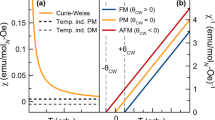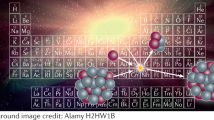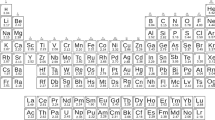Abstract
THE attention of readers must have been arrested by the brief reports contributed to NATURE1 at various times by Mr. Hugh Ramage, an eminent spectroscopic chemist, on the concentration of certain metals in special tissues of plants and animals, up to amounts spectroscopically measurable. The explanation would be that the ultra-infinitesimal amounts of these metallic substances that are present in the food that passes through the organism must be arrested in the organs concerned until the accumulation becomes sensible. An opening seems here to arise into the chemistry of minute traces, which is the aspect of that science that promises most for mathematical development.
This is a preview of subscription content, access via your institution
Access options
Subscribe to this journal
Receive 51 print issues and online access
$199.00 per year
only $3.90 per issue
Buy this article
- Purchase on Springer Link
- Instant access to full article PDF
Prices may be subject to local taxes which are calculated during checkout
Similar content being viewed by others
References
H. Ramage, NATURE, 138, 762 (Oct. 31, 1936).
Author information
Authors and Affiliations
Rights and permissions
About this article
Cite this article
LARMOR, J. Physiological Potency of Dilute Traces. Nature 138, 929–930 (1936). https://doi.org/10.1038/138929a0
Issue Date:
DOI: https://doi.org/10.1038/138929a0
Comments
By submitting a comment you agree to abide by our Terms and Community Guidelines. If you find something abusive or that does not comply with our terms or guidelines please flag it as inappropriate.



